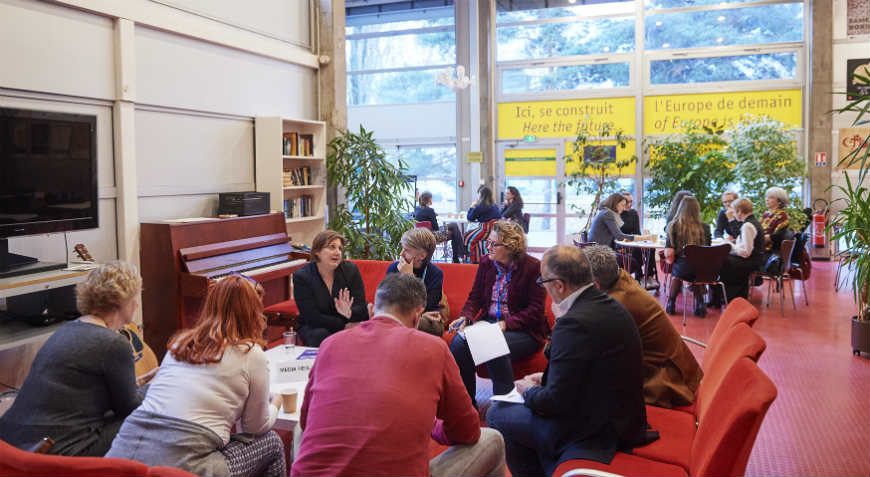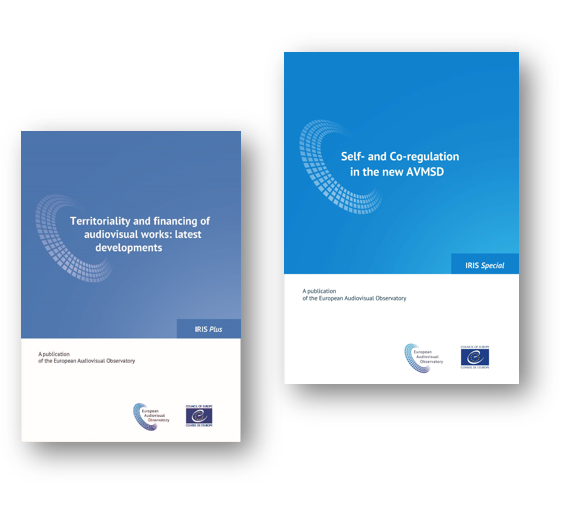The aim of this workshop, organised by the European Audiovisual Observatory, was to discuss gender imbalances in the media and audiovisual industries in Europe, with a particular focus on legal tools, data collection measures and interesting initiatives which have been implemented to tackle gender inequalities off- and on-screen.
The issue of the representation of men and women in the audiovisual sector has been the subject of constant discussions and debates for years. Gender equality is enshrined in Article 8 TFEU as a fundamental principle of the European Union.
Nevertheless, evidence from numerous studies, analyses and statistics on the subject have revealed that gender equality is far from being achieved in the audiovisual sector, both in terms of women’s involvement in the sector and in terms of how women are portrayed in the works produced by these industries.
According to a study carried out by the European Audiovisual Observatory, published in 2014, only 16.3% of European films produced between 2003 and 2012 were directed by women, accounting for just 8.9% of total admissions over the same period.
In recent years, similar studies have suggested that, across Europe, women remain significantly under-represented in the media workforce, particularly at decision-making levels. This issue is particularly problematic given the unique role played by the audiovisual sector and considering its ability to influence and, ultimately, shape public opinion.
You will find here the summary of the discussions held during the workshop.
Opening of the workshop
Susanne Nikoltchev, Executive Director of the European Audiovisual Observatory
Introduction to workshop
Maja Cappello, Head of Department for Legal Information, European Audiovisual Observatory
Session 1 - Setting the scene
Chair: Sophie Valais, Legal Analyst at the European Audiovisual Observatory
Presentation: Main issues and challenges raised at national and international policy levels to ensure gender equality in the audiovisual landscape, Alessia Sonaglioni, Executive Director, European Women’s Audiovisual Network (EWA)
Presentation: Gender Equality and Broadcasting: lessons learned from EPRA survey, Emmanuelle Machet, Coordinator of the Secretariat of the European Platform of Regulatory Authorities (EPRA)
Discussion
Session 2 – Gender imbalances behind the camera
Presentation: Gender imbalances behind the camera Julio Talavera, Department for Legal Information, European Audiovisual Observatory
Presentation: Gender quotas in film funding, Helen Ahlsson, Film Commissioner, Swedish Film Institute
Discussion
Session 3 – Gender imbalances on screen
Chair: Maja Cappello, Head of Department for Legal Information, European Audiovisual Observatory
Presentation: Women in film and TV fiction, Dearbhal Murphy, Deputy General Secretary, International Federation of Actors (FIA)
Presentation: Women in advertising Justina Raižytė, Development and Policy Manager, European Advertising Standards Alliance (EASA)
Discussion
World café brainstorming
Introduction - Concrete examples of existing data collection from the film sector, Martin Kanzler, Department for Market Information, European Audiovisual Observatory
Chair: Maja Cappello, Head of the Department for Legal Information of the European Audiovisual Observatory
- What is on the table today?
- What do we want to achieve?
- Which tools would we need?
- Thinking outside of the box?
- What could be done which has not been tried yet?
- What could the Observatory realistically do in that field?
Wrap-up discussion
Closing of the workshop
Susanne Nikoltchev, Executive Director of the European Audiovisual Observatory

